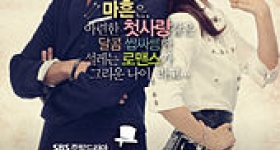Kyle Chu. Photo by Patrick Rafanan.
For Kyle Chu, Queen’s “Don’t Stop Me Now” was the music of choice. In November’s fifth annual Mr. Hyphen contest, Chu strutted triumphantly on stage, the gold fringes on his short black dress whirling with each spry turn and bounce to Freddie Mercury’s exhalant lyrics.
Chu halted his routine only twice to adjust a black bobbed wig and after the tennis balls that had served as breasts bounded across the stage. Energized by the audience’s uproarious cheering, Chu finished his act with a solo saxophone performance and a broad, toothy smile, his gold-legginged backup dancers sprawling on the floor behind him.
The performance propelled Chu past four other contestants to win the 2010 Mr. Hyphen contest, Hyphen magazine’s faux beauty pageant that hopes to counter stereotypes of Asian American men and honors contestants for their community work.
The decision to make drag a central part of Chu’s Mr. Hyphen bid was pointed. Chu, 22, had grown up in San Francisco “wearing his mother’s dresses and singing Evita” and later delved into an academic study of drag during his time at Sarah Lawrence College in New York. He studied how gendered ways of dressing — for example, men wearing pants or women wearing skirts — are learned, and not natural or instinctive characteristics.
“[Drag] is supposed to draw attention to the fact that it’s not me who is ridiculous as a drag performer,” Chu says. “It’s more a matter that we’re all dressing in drag and that all of these traits and appearances are learned. Who is ludicrous in the end: you or me?”
Chu selected the Center for Asian American Media in San Francisco to receive the contest’s $1,000 prize for nonprofit groups. He began as an intern there after graduating from college last year and has continued to help develop programming for the San Francisco International Asian American Film Festival, organized annually by the center.
His work with the group stems from a keen interest in deleterious images of Asians and Asian Americans in film and media. “What most resonates with me is the effeminization of Asian American men,” Chu says. “In a lot of ‘bro’ movies, I find that Asian characters are often used as an object of context in order to make the protagonist seem more manly or normal or rational.” Chu references Ken Jeong’s character, an Asian gangster with an Engrish accent from the 2009 movie The Hangover, as a potent example of the ways in which Asian men bolster the masculinity and rationality of white male characters.
Because of the appearance of such stereotypes in current Hollywood blockbusters, Chu believes that there should be a more robust interrogation of gender, race and sexuality by media makers. He cites Margaret Cho, Wong Kar Wai and Alice Wu (a judge for the 2010 Mr. Hyphen contest) as artists whose provocative work exposes the often dark and idiosyncratic arenas within Asian and Asian American identity.
The appropriate response to such harmful stereotypes, according to Chu, lies in what he calls an “educated retaliation”: arming oneself with a sophisticated understanding of history, ethnic struggle and race relations.
Such a response was what Chu wished for during an incident in college when he was called “chink” during an intimate moment with a partner, who was white. “When he called me that name,” Chu says, “I just felt like I wanted to know the entire history of that word. I wanted to know my entire family history. I wanted to know everything about everything, about American history, about race in America, about civil rights. I wanted to memorize the Constitution.” Chu wanted to know these things “so I could turn it back around and call him an idiot and tell him why.”
Chu believes that the pursuit of understanding his history, self and community supplies a forceful reservoir of informed responses to stereotypes — should he ever have to face a situation like that again.
“I don’t have to fight back, but I can if I want to,” he says.
Cathlin Goulding is a books editor for Hyphen. She last wrote for Hyphen on ’60s film actress Nancy Kwan.









Comments